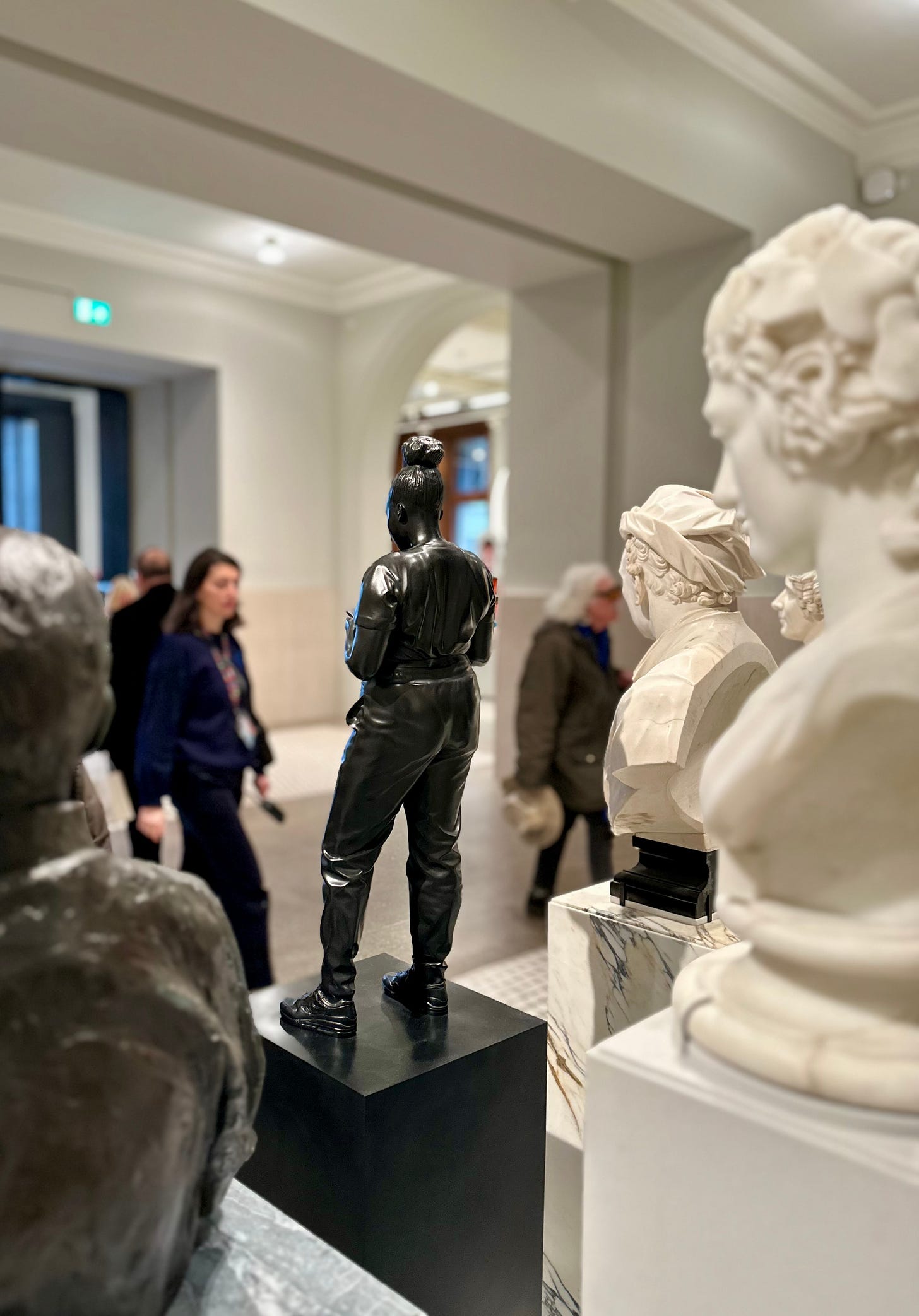
We have just passed the halfway point of my first year writing First & Fifteenth. Thank you for being here!
Paid subscriptions
Have you considered taking a paid subscription? You get the full text from all of my essays and access to my carefully curated reading and podcast lists.
An annual subscription is £50 — which is less than a cup of coffee and pastry each month (in London at least…), or you can pay monthly and it’s £5 per month.
Students, teachers, and lecturers — if you have already subscribed to my free newsletter with an email address from your educational institution, you automatically get access to a permanent 50% discount, making it £25!
Referrals
Alternatively, you can invite your friends to subscribe. If anyone you invite starts a free subscription, then you get the benefit — which means full access to Fifteenth, my paid newsletter for a limited time!
How to participate
1. Share First & Fifteenth. When you use your personalised referral link below, or the “Share” button in any future newsletter email you receive, you get credit for any subscribers that sign up. You can send the link in a text, by email, or share it on social media.
2. Earn benefits. When anyone uses your referral link to subscribe, YOU get referral benefits:
1 month of complimentary access to Fifteenth for 3 referrals
3 months of complimentary access to Fifteenth for 5 referrals
6 months of complimentary access to Fifteenth for 15 referrals
To learn more, take a look at Substack’s FAQ.
Stay First
As I take a break this month, let’s recap how things have changed since I wrote my earlier book reviews and essays — because technology never stays still.
January
I wrote a review of Death Glitch by Tamara Kneese.
In “Digital recreations of dead people need urgent regulation, AI ethicists say”, The Guardian reports in May 2024 on the dawning realisation that it is now far too easy to create digital replicas of dead people. This quote stood out to me:
”Digital recreations of dead people are on the cusp of reality and urgently need regulation, AI ethicists have argued, warning “deadbots” could cause psychological harm to, and even “haunt”, their creators and users.”
A really weird rabbit hole explored by 404 Media, as they try to excavate the origin of a lost song.
A reminder of a lost internet retrieved from Geocities in One Terabyte of Kilobyte Age.
A lovingly curated collection of abandoned blogs which I found via Webcurios 10/05/24
The 4 July 2024 episode of Tech Won’t Save Us addresses platform decay and the protracted degradation of Facebook. Is this a warning of things to come on other social media platforms?
February
I wrote an essay on names. The use and meaning of “data centre” gave me much to write about. If you are interested to delve further:
The Environmental Media Lab has formed an art-led critical inquiry to study data centres and cloud infrastructures at Critical Studies of The Cloud.
When we say “data centre” or “Cloud”, it distances us from the equipment making our technology work, and the labour need to maintain it. The Verge published a story in April 2024, “The Cloud Under The Sea” that follows the people who work far out at sea fixing broken deep sea cables of the internet.
Data & Society published a very useful guide, Keywords of the Datafied State, to help us all gain familiarity with the language of datafication.
Closer to home, London Spy has a fascinating investigation of the land, electricity and resources needed to satisfy London’s growing digital demand in “The plan to turn London into a data doughnut”, published in June 2024.
March
I wrote about the algorithmic and technological militarisation of borders:
FT Weekend published an interview in March 2024 with the founder of one of the leading solutions providers in this growing industry, in “How Silicon Valley’s ‘Oppenheimer’ found lucrative trade in AI weapons”
The April 6 2024 episode of This Machine Kills examines how this is being implemented in Australia:
April
Introducing more-than-human design, where I critiqued human-centredness and the centralising, extractive nature of designing and making:
The idea of personhood, and rethinking who or what gets legal protection, is key to this more-than-human ecologies. The FT reports in April 2024 on the “The pensioners and babies behind a new era of climate lawsuits”.
Decentralisation is another important aspect of this work — extending to the words we use. Ishwari Thopte explores this in “The power of language and multi-lingual perspectives” in this blog post from May 2024.
And if you are a coder, this concerns you as well! Take a look at Programming Languages! (found via Tiny Channels on are.na)
May
My thoughts turned to the nature of archives, and the stories we tell and lose, when we wholly rely on digital technologies:
The radical archives movement making art from forgotten histories is a wonderful companion piece, bringing to light valuable art-led work being led by Desiree Reynolds at Sheffield’s City Archives. If you can get to Sheffield before 18 August, visit “Dig Where You Stand”.
June
The start of summer saw the arrival of The Good Robot. A few days before I sent my newsletter out, I met Kerry and Eleanor (the book’s co-editors) at a live recording of the FUTURES podcast. You can now listen to the podcast recording of this event:
July
Last month I reviewed Where We Come From by Aniefiok Ekpoudom, which is a beautifully written journey through Black British music. Watch Neef in conversation with Elijah at London’s Roundhouse:
All of this is to say, continue reading First & Fifteenth. I’m only getting started!!
🏖️


